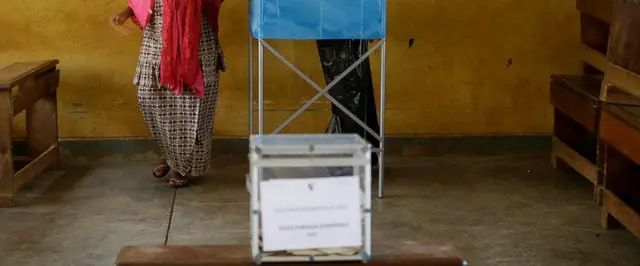The U.S. initiated summit on the fight against "violent extremism" is set to take place in Washingto on Feb. 18, in the wake of a series of terrorist acttacks from the Middle East to Europe, with the latest shootings killing two in Denmark.
This summit, themed "Summit on Countering Violent Extremism," aims "to highlight U.S. and international efforts to prevent violent extremists and their supporters from radicalizing, recruiting or inspiring individuals or groups in the United States and abroad to commit acts of violence," according to the White House.
At the summit, U.S. President Barack Obama is expected to meet with security experts and government officials from Britain and dozens of other countries in light of recent terrorist attacks in Denmark, Canada, Australia, France and Nigeria.
The extremist activities have rampantly increased with the Islamic State's rising over the past few years, not only in conflict-torn countries or regions, but also in Western countries.
The IS group, one of the growing extremist groups, released on Feb. 15 in Libya a video showing the beheading of 21 Egyptian Christians after they burnt alive a Jordanian jet pilot who was captured on a battle mission by the IS in late January.
In Denmark, the dual shootings killed two innocent people and wounded several police officers, which were called by Denmark's Prime Minister Helle Thorning-Schmidt as a "cold-blooded act of terror" against Denmark.
Washington has participated or has been involved in many anti-terrorism military actions around the world, and initiated several strategies against extremist groups.
While it would like to consider itself as the leader of the anti-terrorism alliance, observers, at home or abroad, believed that the U.S. administration has no efficient security policy against terrorist groups, and most of the Americans disapproved of Obama's handling of the IS.
A new CNN/ORC survey released on Monday showed that 57 percent of the Americans surveyed disapprove of how Obama is handling the IS, a noticeable increase compared with the last September survey in which 49 percent of the respondents raised their eyebrows at Obama's handling with the extremist group.
Congressionals are still divided on the authorization which Obama requested to formally authorize military force against the IS militants, and will start hearing on Obama's proposal after its weeklong President's Day recess.
As an interesting episode and a proof of dissatisfaction of the public, some Republican lawmakers and U.S. media outlets have criticized the Obama administration for not sending a top leader to the Paris unity march after 12 people were killed in a deadly Islamic militant attack on the satirical magazine Charlie Hebdo.
Commenting on launch of military operations -- a typical approach adopted by the U.S. administration, Andrey V. Kortunov, director general of the Russian International Affairs Council, has blamed Washington, saying military actions taken by the United States "destroy states" and "unleash radical forces," and terrorism finds easy prey in these countries.
On the U.S. war on terror, he said, "Definitely they are not successful in suppressing the sources of terrorism and here more international cooperation is definitely needed."
According to Kortunov, people can try to prevent terrorism through education, economic assistance, more tolerance and cooperation between proper security agencies. Enditem
 简体中文
简体中文

